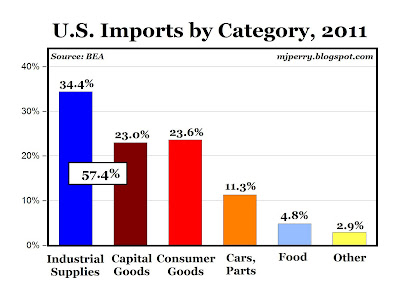
1. In 2009, the U.S. imported more from China ($354 billion) than it exported ($93 billion), resulting in a "trade deficit" of -$263 billion on our "current account" (
data here). But that is only part of the international trade story, since there are also financial transactions that have to be accounted for, and that deficit on the current account has to be offset somehow, since all international trade has to balance (it's based on double-entry bookkeeping).
2. The offsetting balance came from the $263 billion capital account surplus in 2009, as a result of $263 billion of net capital inflow to the U.S. from China to buy our Treasury bonds and other financial assets.
3. The $263 billion capital account surplus exactly offsets the current account deficit.





 source
source






